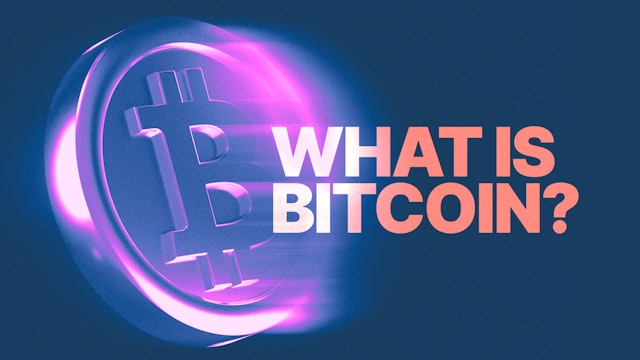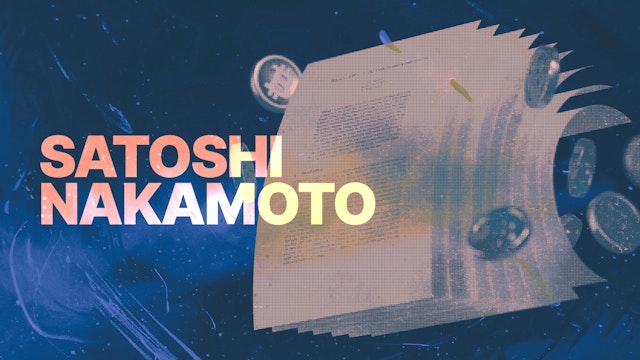Buy Bitcoin vs. Buy Bitcoin ETPs / ETNs: A Comparison
Bitcoin Vs Bitcoin ETPs/ETNs: Are there advantages of buying Bitcoin directly versus investing in Bitcoin ETPs?
In this article...
- Bitcoin Exchange-Traded Products (ETPs) give you price exposure through a traditional brokerage account, but you cannot use them as money or interact with the wider crypto ecosystem.
- Direct Bitcoin ownership gives you around-the-clock access and more control, but you are responsible for your own security and can lose funds through mistakes.
- UK investors typically get listed-market exposure to Bitcoin through ETPs, not the specific Exchange-Traded Funds (ETF) structures that are available in the US.

Spot Bitcoin funds have pushed Bitcoin into the mainstream conversation, especially since the US Securities and Exchange Commission (SEC) approved several spot Bitcoin ETFs in January 2024. Seeing Bitcoin appear alongside shares and bonds naturally raises a question for many people: is it better to gain exposure through a regulated investment product, or to buy Bitcoin directly?
For people in the United Kingdom, the answer is not straightforward. The products that make headlines in the US are not the same as those available on UK platforms. Understanding how UK products work, and how they differ from buying Bitcoin directly, is important before you commit any money.
The UK market: ETPs vs ETFs
Before comparing the options, it helps to clear up some common confusion. The “spot Bitcoin ETFs” you see discussed on financial news channels are mostly US-listed funds.
In the UK, professional and eligible institutional investors can access Bitcoin ETPs (Exchange-Traded Products) on venues such as the London Stock Exchange. These products are designed to track the price of Bitcoin and trade in a similar way to a share or ETF. However, their legal structure is often different. Many are set up as Exchange-Traded Notes (ETNs) or other forms of ETP.
From a user’s point of view, buying an ETP means you hold a financial instrument that reflects the price of Bitcoin. You do not hold Bitcoin itself and you cannot withdraw it to your own wallet. Retail access to cryptoasset ETPs is currently heavily restricted in the UK, so some of the products you read about may not be available to you as an individual investor.
Convenience and regulation
For investors who can access them, the main appeal of a Bitcoin ETP is how easily it can fit within an existing investment account. That convenience comes with its own limits and risks.
Familiar platforms
Buying a Bitcoin ETP feels similar to buying a share in a large company. You log in to your usual share trading or investment platform, search for the product code, and place an order during market hours. You do not need to open a new crypto exchange account or learn how to use a blockchain wallet.
This feels simple, but it can also make it easy to forget that you are still taking on high risk. Bitcoin remains volatile, and buying it through a listed product does not remove the chance of large and sudden losses.
Regulatory oversight
Bitcoin ETPs are financial instruments issued by regulated firms. Providers such as WisdomTree, BlackRock or 21Shares must follow rules around disclosure, custody arrangements and reporting standards.
Regulation can reduce some operational risks, for example around how assets are held or how information is reported to investors. It does not make Bitcoin itself safer as an investment, and it does not protect you from price falls. In the UK, cryptoasset investments are generally not covered by the Financial Services Compensation Scheme (FSCS) or the Financial Ombudsman Service (FOS).
Tax reporting
Holding Bitcoin via an ETP can simplify record keeping for some investors. Your broker may give you a consolidated tax report that shows disposals and gains in one place.
If you buy and sell Bitcoin directly across several exchanges or wallets, you are responsible for keeping detailed records, such as dates, amounts and values in pound sterling. This can be more time consuming and complex, especially if you trade often. Either way, you are still responsible for paying any Capital Gains Tax or Income Tax that is due.
Tax rules depend on your personal circumstances and can change. If you are unsure, speak to a qualified tax professional.
Control and utility
Buying Bitcoin directly, for example swapping pounds for BTC on a crypto exchange, offers a very different experience. It comes with more control, but also more responsibility and more ways to make a costly mistake.
24/7 market access
The Bitcoin network operates all day, every day. If you own Bitcoin directly and hold it in a wallet you control, you can send or sell it at any time, including late at night or at weekends.
By contrast, listed products such as ETPs trade only when the stock exchange is open, usually Monday to Friday during set hours in London. If the price of Bitcoin moves sharply on a Saturday, you may not be able to react through an ETP until markets open again. This timing gap can work for you or against you.
Ownership and self-custody
If you buy a Bitcoin ETP, you hold a claim on a product. If you buy Bitcoin itself and withdraw it to a private wallet, you hold the asset directly on the blockchain through your private keys.
Some people like this direct control and see it as a way to hold money outside the traditional banking system. However, with that control comes full responsibility. If you lose access to your private keys or recovery phrase, there is usually no way to recover your funds.
Practical use
You cannot spend a Bitcoin ETP in a shop or send it to a friend. It is an investment product, not a payment method.
Direct Bitcoin ownership lets you send funds peer to peer around the world, subject to any local laws and platform rules. For example, you may be able to pay a freelancer abroad, support a project, or use Bitcoin on crypto platforms. This extra utility only applies if you hold Bitcoin in a form you can move, and it also exposes you to new risks such as scams and technical errors.
Real-life examples: How it works in practice
To make the trade-offs clearer, consider two fictional UK investors, Sarah and Tom. They both understand that Bitcoin is high risk and that they could lose their entire investment.
The ETP investor
Sarah wants some exposure to Bitcoin’s price, but she prefers to keep everything in one investment app. She uses a platform that offers a Bitcoin ETP and buys some units on a Tuesday afternoon.
- The experience: The ETP appears in her portfolio next to her equity and bond funds. She pays an ongoing annual fee, known as an expense ratio or management fee. She does not have to think about wallets, private keys or blockchain transactions, which she finds reassuring.
- The limitation: On Saturday evening, news breaks and Bitcoin’s price falls by 10% on crypto exchanges. Sarah checks her investment app, but the ETP price has not yet updated because the stock market is closed. She must wait until markets open on Monday to sell, and the opening price may already reflect the weekend drop.
Even though the buying process felt simple, Sarah still faced the same underlying price volatility as a direct Bitcoin holder, plus the extra constraint of market hours.
The direct buyer
Tom decides to buy £500 worth of Bitcoin through a UK-registered crypto exchange that carries out identity checks. He understands that this money is at high risk and that the value could go to zero.
- The experience: After buying, Tom moves the Bitcoin to a hardware wallet, which is a small physical device. He writes down the recovery phrase and stores it in a safe place. He now controls the private keys, which gives him direct access to his Bitcoin.
- The utility: A month later, Tom finds a vintage watch for sale by a private seller in Japan who accepts Bitcoin. Tom sends payment from his wallet. The transfer settles in a short time, and he avoids separate currency conversion steps. The transaction cannot easily be reversed if something goes wrong.
- The responsibility: Tom accidentally misplaces his hardware wallet while travelling. Because he kept his recovery phrase secure and separate, he can restore his funds to a new device. He knows that if he had lost the recovery phrase, the Bitcoin would probably have been lost permanently.
Tom gains flexibility and utility, but he also needs to keep on top of security, scams and technical know-how.
Risks and red flags
Whichever route you choose, exposure to Bitcoin is speculative and high risk. The value can rise or fall quickly and sharply, and you could lose all your money. The type of risk and how you manage it look different depending on whether you use an ETP or hold Bitcoin directly.
Risks of Bitcoin ETPs
- Market hours risk: You can usually only trade when the stock exchange is open. If the Bitcoin price moves sharply overnight or at the weekend, you may not be able to react through your broker until later. This timing gap can increase your losses in fast markets.
- Fees: ETPs charge ongoing management fees, often quoted as a yearly percentage, for example 0.3% to 1.5%. Over several years, these charges can materially reduce your overall return compared with holding Bitcoin directly, where there is typically no ongoing holding fee, although you will still face trading and withdrawal costs.
- Counterparty and product risk: With an ETP, you rely on the issuer and the underlying structure of the product. If the issuer, custodian or another key party fails, or if the product is not structured as expected, you could be exposed to losses that are not directly linked to the Bitcoin price. While large providers may reduce this risk, they do not remove it.
Risks of direct ownership
- Security responsibility: You are your own security team. If you fall for a phishing email, connect your wallet to a malicious website, download infected software, or share your recovery phrase, criminals can steal your funds. In most cases there is no way to reverse a fraudulent crypto transaction.
- Exchange and platform risk: If you leave your Bitcoin on a centralised exchange, you are trusting that business to safeguard your assets. History has seen several exchanges fail or be hacked, resulting in customer losses. Even with better controls today, there is still a risk that a platform could have operational problems or become insolvent.
- Transaction errors: Sending Bitcoin to the wrong address, choosing the wrong network, or entering an incorrect destination can result in permanent loss. There is usually no support desk that can “undo” a blockchain transaction once it is confirmed.
- Technical complexity: Managing wallets and network fees can be confusing for beginners. Mistakes made while learning can be very expensive.
Summary: Key points to consider
The choice between a Bitcoin ETP and direct Bitcoin ownership depends mostly on your goals, your level of experience and how much responsibility you are comfortable taking on.
The ETP or listed investment route may suit people who mainly want exposure to Bitcoin’s price within a traditional investment account, and who value familiar platforms and consolidated statements. It can feel more straightforward, but it still carries high risk, ongoing fees and limits on when you can trade. Buying an ETP does not make Bitcoin a low-risk or suitable investment for everyone.
The direct ownership route may appeal more to people who want to use Bitcoin as a digital asset in its own right, with 24/7 access and the ability to move or spend it. This route offers more control and functionality, but it also shifts most of the risk management to you. Poor security, scams or simple human error can result in permanent loss of funds.
In both cases, you are exposed to the same underlying Bitcoin price movements, which can be extreme in either direction. The main differences are in control, cost, flexibility and the types of risk you are willing and able to manage.
Only invest money you can afford to lose. If you are unsure whether cryptoassets or related products are suitable for you, consider speaking to a regulated financial adviser.

Suggested Articles

Bitcoin for Beginners: A Complete Guide to the World’s First Cryptocurrency
Unpacking the history, technology, and mechanics behind the digital asset that helped popularise crypto, along with the key risks you need to understand before you get involved.Read more
How to Buy Bitcoin (BTC) in the UK the Convenient Way
Want to Buy Bitcoin in the UK? Buy BTC the convenient way by using CoinJar. They have been in operation since 2013.Read more
Who Is Satoshi Nakamoto, the Mysterious Bitcoin Creator?
The mysterious creator of Bitcoin has never been exposed... yet. Who is it? Here's what we know so far... Read moreBrowse by topic
Standard Risk Warning: The above article is not to be read as investment, legal or tax advice and it takes no account of particular personal or market circumstances; all readers should seek independent investment advice before investing in cryptocurrencies.
The article is provided for general information and educational purposes only, no responsibility or liability is accepted for any errors of fact or omission expressed therein. Past performance is not a reliable indicator of future results. We use third party banking, safekeeping and payment providers, and the failure of any of these providers could also lead to a loss of your assets.
We recommend you obtain financial advice before making a decision to use your credit card to purchase cryptoassets or to invest in cryptoassets.
Capital Gains Tax may be payable on profits.
CoinJar's digital currency exchange services are operated in the UK by CoinJar UK Limited (company number 8905988), registered by the Financial Conduct Authority as a Cryptoasset Exchange Provider and Custodian Wallet Provider in the United Kingdom under the Money Laundering, Terrorist Financing and Transfer of Funds (Information on the Payer) Regulations 2017, as amended (Firm Reference No. 928767).
In the UK, it's legal to buy, hold, and trade crypto, however cryptocurrency is not regulated in the UK. It's vital to understand that once your money is in the crypto ecosystem, there are no rules to protect it, unlike with regular investments.
You should not expect to be protected if something goes wrong. So, if you make any crypto-related investments, you're unlikely to have recourse to the Financial Services Compensation Scheme (FSCS) or the Financial Ombudsman Service (FOS) if something goes wrong.
The performance of most cryptocurrency can be highly volatile, with their value dropping as quickly as it can rise. Past performance is not an indication of future results.
Remember: Don't invest unless you're prepared to lose all the money you invest. This is a high-risk investment and you should not expect to be protected if something goes wrong. Take 2 mins to learn more.
UK residents are required to complete an assessment to show they understand the risks associated with what crypto/investment they are about to buy, in accordance with local legislation. Additionally, they must wait for a 24-hour "cooling off" period, before their account is active, due to local regulations. If you use a credit card to buy cryptocurrency, you would be putting borrowed money at a risk of loss.
We recommend you obtain financial advice before making a decision to use your credit card to purchase cryptoassets or to invest in cryptoassets.
Your information is handled in accordance with CoinJar’s Privacy Policy.
Cryptoassets traded on CoinJar UK Limited are largely unregulated in the UK, and you are unable to access the Financial Service Compensation Scheme or the Financial Ombudsman Service.
We use third party banking, safekeeping and payment providers, and the failure of any of these providers could also lead to a loss of your assets.
We recommend you obtain financial advice before making a decision to use your credit card to purchase cryptoassets or to invest in cryptoassets. Capital Gains Tax may be payable on profits.
CoinJar’s digital currency exchange services are operated in the UK by CoinJar UK Limited (company number 8905988), registered by the Financial Conduct Authority as a Cryptoasset Exchange Provider and Custodian Wallet Provider in the United Kingdom under the Money Laundering, Terrorist Financing and Transfer of Funds (Information on the Payer) Regulations 2017, as amended (Firm Reference No. 928767).
Apple Pay and Apple Watch are trademarks of Apple Inc. Google Pay is a trademark of Google LLC.
This site is protected by reCAPTCHA and the Google Privacy Policy and Terms of Service apply.

